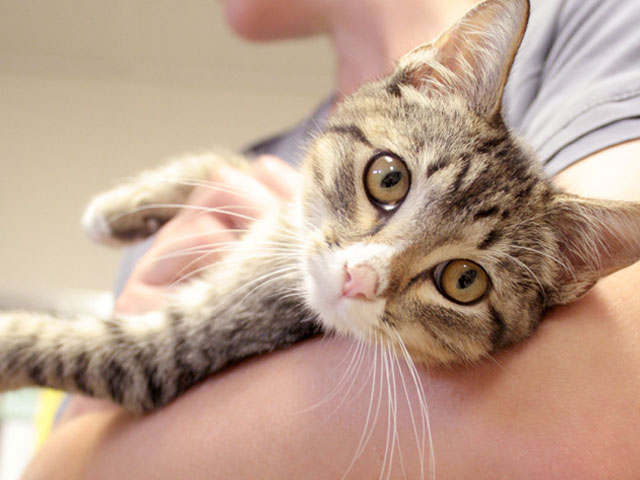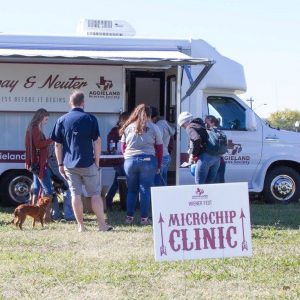Microchipping

GET CHIPPED!
Aggieland Humane Society offers microchipping for your pets. You can stop by the shelter during business hours, and we can quickly implant one. The whole process can take less than 10 minutes. The cost is only $25, and the peace of mind provided is priceless.
If you adopted a pet from us, they already have a microchip implanted.
GET CHIPPED!
Aggieland Humane Society offers microchipping for your pets. You can stop by the shelter during business hours, and we can quickly implant one. The whole process can take less than 10 minutes. The cost is only $25, and the peace of mind provided is priceless.
If you adopted a pet from us, they already have a microchip implanted.
Need to update your info?
Keeping the contact information on your pet's microchip up to date is important to ensure your pet can get back home. Give us a call at 979-775-5755 if you need to update your contact details and we'll be glad to help!



frequently asked questions
from the American Veterinary Medical Association
A microchip is a small, electronic chip enclosed in a glass cylinder that is about the same size as a grain of rice. The microchip itself does not have a battery—it is activated by a scanner that is passed over the area, and the radiowaves put out by the scanner activate the chip. The chip transmits the identification number to the scanner, which displays the number on the screen.
It is injected under the skin using a hypodermic needle. It is no more painful than a typical injection, although the needle is slightly larger than those used for injection. No surgery or anesthesia is required—a microchip can be implanted during a routine veterinary office visit. If your pet is already under anesthesia for a procedure, such as neutering or spaying, the microchip can often be implanted while they’re still under anesthesia
When an animal is found and taken to a shelter or veterinary clinic, one of the first things they do is scan the animal for a microchip. If they find a microchip, and if the microchip registry has accurate information, they can quickly find the animal’s owner.
The microchips presently used in pets only contain identification numbers. The microchip cannot track your animal if it gets lost. Although the present technology microchip itself does not contain your pet’s medical information, some microchip registration databases will allow you to store that information in the database for quick reference.
Some microchips used in research laboratories and for microchipping some livestock and horses also transmit information about the animal’s body temperature.
Definitely! A study of more than 7,700 stray animals at animal shelters showed that dogs without microchips were returned to their owners 21.9% of the time, whereas microchipped dogs were returned to their owners 52.2% of the time. Cats without microchips were reunited with their owners only 1.8% of the time, whereas microchipped cats went back home 38.5% of the time. (Lord et al, JAVMA, July 15, 2009) For microchipped animals that weren’t returned to their owners, most of the time it was due to incorrect owner information (or no owner information) in the microchip registry database – so don’t forget to register and keep your information updated!
If you have any further questions, please feel free to contact us at 979-775-5755.

